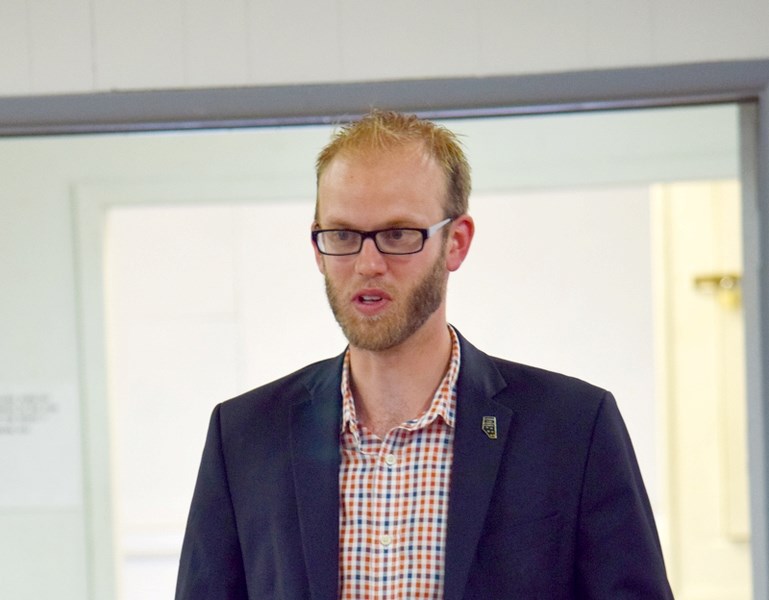Conservative Member of Parliament Arnold Viersen is not happy with the federal government’s decision to force the provinces to set carbon pricing minimums.
On Oct. 3, Prime Minister Justin Trudeau issued an ultimatum regarding carbon pricing for the provinces and demanded a minimum be set with a two year time limit or the federal government would step in and do it themselves, and Viersen said it is not clear whether this provincial carbon tax will be in addition to the federal tax, or if it will be a new one.
“This new tax, regardless of whether it is in addition to a federal one or not, is going to cause everybody’s life to become a bit harder,” Viersen said, adding the most visible effect will be at the gas pumps where it is estimated current prices will rise by approximately $0.11 per litre.
“Whether it is purely a provincial tax, or if it goes hand-in-hand with a federal one, it is going to be really hard on rural Albertans,” he said.
Every time he raises this particular issue, Viersen said, the response from many politicians is that rural Canadians should move to the cities.
“It’s like these people don’t know where their food comes from,” he added.
Viersen said fertilizer and fuel costs are going to see an increase and in turn, food costs and everything else will go up too.
“It will affect rural Albertans, and all Canadians who live outside of cities for that matter, disproportionately,” he said. “Nobody is saying we should not be doing our part to reduce pollution, but when it comes to greenhouse gases (GHGs), Canada is not a big-time player like some of our competitors — Russia, China, India, for example, and a tax like this would be fine if we were actually making a dramatic difference in the world.”
Viersen said seeking greater efficiencies is a good and noble cause.
“Ensuring pollution is kept to a minimum is something we can all agree that we need to work on, and we should be working hard to bring new technologies forward to do so, but we should be championing Canadian industries as they relate to these issues, not crippling them.”
Typical businesses such as farms operate on slim margins as it is, Viersen said, adding that with this new carbon pricing, businesses like these will no longer be profitable.
“This new tax just makes life unaffordable for everyone and it paints a clear picture of the federal government not being able to see beyond their city limits,” he said.
“It will be interesting to see how the tax will play out with regards to inter-provincial politics moving forward,” he said, adding provinces such as Nova Scotia, Saskatchewan, Newfoundland, and the Yukon Territory are frustrated by the ultimatum.
“Some people question whether it is constitutional to play one province off another,” he said, referencing Trudeau’s message to either institute a provincial carbon price, or adopt a cap-and-trade agreement with a neighbour.
“For municipalities, this is going to be brutal,” he said, adding it will be even moreso for the residents. “They’ll essentially get hit twice and in my opinion, this is not a well thought-out process.”
“We live in a global world and if everyone were doing this, we might have a chance,” he said, adding the country should not be throwing its economy under the metaphorical bus in his opinion.



